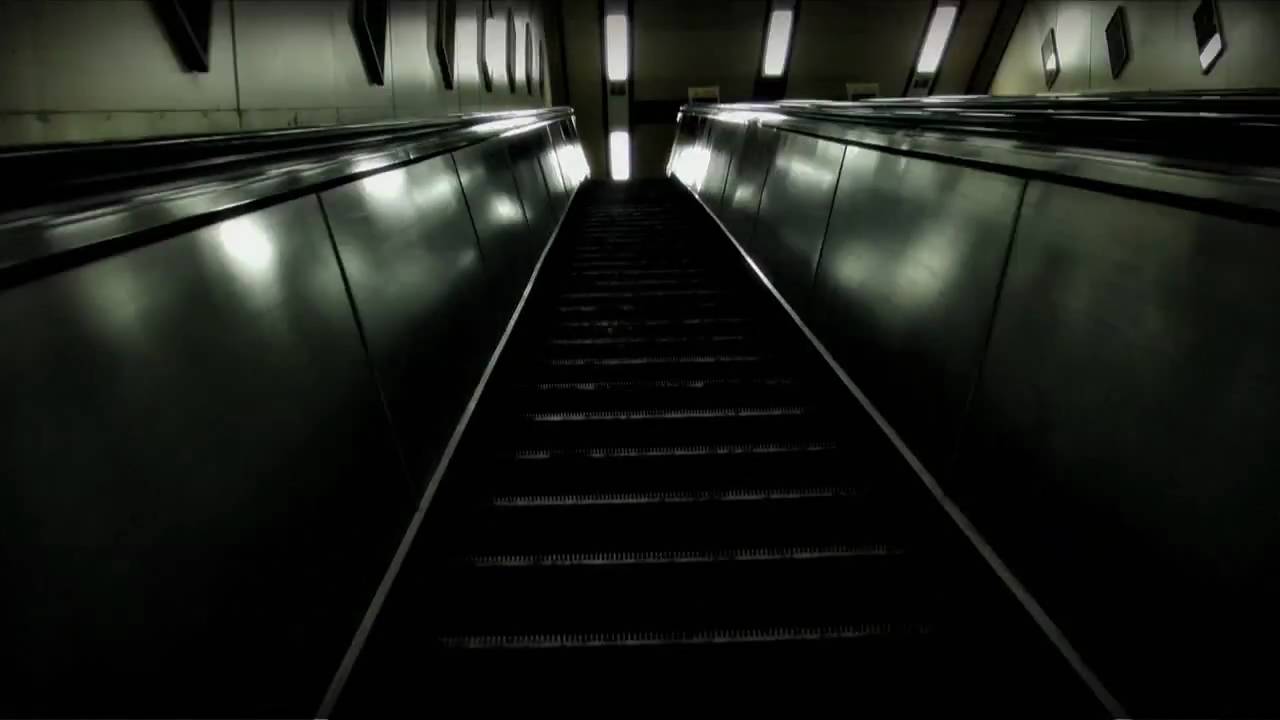Though they’ve been making records together as Field Music for more than two decades, there was nothing inevitable about brothers David and Peter Brewis becoming each other’s closest collaborator. In the early 2000s both were fronting their own projects, David’s New Tellers and Peter’s Electronic Eye Machine, though with limited success.
“I always refer to it as our period of flailing,” says David as he looks back to the duo’s early musical career and the formation of Field Music. “We were trying to do things, and we didn’t know how to do them. We were kind of waiting for someone to show us how to make a record – you know, what’s the trick?”
The trick, it turned out, was to trust each other, and to work things out as they went along. As Peter remembers, “We got to the point where it was like, ‘Why don’t we just pool our ideas and see if we can work together?’” And so began a fascinating process of trial and error, which continues this month with the duo’s ninth song collection as Field Music, Limits Of Language.
With the brothers always working out of their own studio space in Sunderland, there have been commissions, collaborations and solo projects too, under the banner of Field Music Productions. There have also been fallow periods, where the duo have deliberately taken a step back, using breaks and other projects in part as a way to freshen things up when they return to Field Music – one of the reasons they’ve enjoyed such extraordinary longevity.
Through this time, there have been occasional flirtations with the charts and a Mercury nomination for Plumb in 2012. Mostly, though, the Brewis brothers have been content to hone their particular brand of arch and angular art rock at a geographically safe remove from what David calls “the wider music industry” – an edifice both brothers appear to regard with some suspicion (although Peter does lecture at the Northern Academy of Music Education).
Back at the beginning of Field Music, says David, as they worked on their eponymous debut “there were only two things that were out of bounds or at the edge of bounds: repeating ourselves and relying on clichés. And a bit of that stuck with us. If you’re gonna use a cliché, you have to subvert it in some way, but definitely don’t do that thing where you just construct music out of the clichés of pop music.”
As the following snapshots from the life and times of Field Music show, each offering a jumping-off point for further sonic adventures, it’s an approach that has enabled the Brewis brothers to craft an ongoing catalogue that’s idiosyncratic yet eminently accessible, for all the duo claim even now to be working things out as they go along. Or as Peter puts it, “I still think we can’t figure out how to be a band…”
Field Music – ‘Tell Me Keep Me’ from Field Music (2005)
Peter Brewis: We were inspired by some of the DIY stuff that was going on. DIY was almost like a style of music, punk, and we thought, “Well, DIY could be anything, as long as you’re doing it yourself. Let’s just do it, let’s just make a record, and then we’ll send it out to a few people who might be interested.” What happened musically in ‘Tell Me Keep Me’ was we threw everything at it, everything, every idea and it all kind of stuck – a massive bass riff, these strange polyphonic keyboard lines, there’s a string trio in there, Beach Boys harmonies. There’s this kind of noisy breakdown, where it’s just a bit of noise and Prince-style, acoustic guitar.”
David Brewis: Typewriter percussion!
PB: We thought, “Actually, you know what? This all works. This could be the style of music we make, not college rock, but collage rock.”
Field Music – ‘In Context’ from Tones Of Town (2007)
DB: Because we’d been performing live, a lot of the stuff on the second album is the trio [with keyboard player Andrew Moore] playing together. But also we were pushing against the idea [that we were an indie guitar band]. ‘In Context’ is incredibly impractical, not a feasible song to play live because it was recorded mostly as an improvisation. I’d read about Yankee Hotel Foxtrot by Wilco. There was talk of they made this album, and then Jim O’Rourke and Jeff Tweedy cut bits and put it back together in an unusual shape. And when I heard it, it was like, “Oh, that’s not what I thought you’d described, so I’m going to do something where it really is like that.” We recorded a lot of things and then chopped them up and put them the wrong way around and had things coming in and out at unexpected places. That [approach] made it even harder for us to function in the music industry…
Field Music – ‘Them That Do Nothing’ from Field Music (Measure) (2010)
PB: We’d lightened up a bit and [after putting the band on hiatus] maybe rediscovered our love of rock music.
DB: That’s how we learnt to play, doing classic rock covers in pubs. During our years of supreme self-consciousness – from 18/19 though to 24/25 – we were like, “We must never admit we did ‘Born To Be Wild’.”
PB: We got it completely wrong as well.
DB: Yeah, we played all those songs wrong. I didn’t know how to listen, basically.
PB: I remember writing it and I was like, “Dave, is this too cheesy?” And Dave’s like, “Nah, it’s fine, let’s just do it.” Our dad had this phrase when we messed things up, “Well, don’t forget, them that dae nowt mack nae mistakes.” I thought, “I can’t say that.” Only people who had read Rabbie Burns or something would’ve got it.
Field Music – ‘From Hide And Seek To Heartache’ from Plumb (2012)
PB: It’s a nostalgic song really. I think the string arrangement is good.
DB: It’s my favourite song on the album.
PB: Well, it’s very nice…
DB: …didn’t ask for yours!
DB: It’s a regret for me that [when Field Music peformed live during the Mercury Prize Ceremony following Plumb’s nomination] we did the one that’s most like normal music [‘(I Keep Thinking About) A New Thing’], instead of doing [‘From Hide And Seek To Heartache’] which is most unique. Like us and nothing else. I think it’s part of our DIY approach to things that we try and be really practical about making things work on the budget that we have available for that one thing, but we should have chucked practicality out of the window, not played a single, brought a string quartet along and done this.
School Of Language – ‘So Much Time’ from Old Fears (2014)
DB: After Plumb, it was like, let’s not rush into doing the next record. We both became parents. We realised we could make diversionary records as a way to dig into particular ideas. I basically wanted to make a Timbaland/Neptunes style-album about when I was at my most shy and socially anxious, which was in the run-up to meeting my wife. The person that was me at 21 would not have been a useful person to be the father of a child.”
Pitchfork said the album “plays like a nostalgic fever dream of someone who just had a breakthrough at therapy”
DB: Very good! It wasn’t therapy, but it was trying to come to terms with who I was then, and how that relates to who I am now, probably in part triggered by having to be a performer, almost wanting to be a performer, but finding it a really uncomfortable thing to do.
Field Music – ‘Headland’ from Music For Drifters (2015)
PB: The Berwick Film Festival asked us to do a score to John Grierson’s Drifters [a 1929 silent documentary about the North Sea herring fishing industry]. We were like, “Yeah, someone asked us to do something weird, let’s do it!” We watched the film, and we thought, “We need to do something where we’re like The Doors for this, kind of swimmy and slightly jazzy.” We’d get together with Andy and be a little band improvising over the whole film. I loved it.
DB: Because we did it through these improvisations, we did everything to visual cues from the film. So when we performed it for real, we were on either side of the stage, basically looking up at this massive screen showing a thunderstorm.
PB: We were on a slightly raked cinema stage.
DB: It was quite nausea inducing, a wild experience, but this added to the spontaneity of the whole thing. We couldn’t have played it right, you could only play it.
Field Music – ‘The Noisy Days Are Over’ from Commontime (2016)
PB: In the end section, it’s definitely a homage to Parade-era Prince [who subsequently tweeted about the song]. I just hope he listened to it and thought, “Oh, these guys have ripped me off, but I don’t mind.”
DB: His Twitter persona was so gnomic. It wasn’t like he wrote a little post, “Hey, heard this cool band, they’re called Field Music, here’s a song.” It was just “Field. YouTube link. Music.” Nothing else. I honestly worried that it was a kind of little legal shot across the bows. I’ve seen what you guys are doing, expect to hear from my lawyer soon. In the aftermath, I wrote an article about a few Prince things that we borrowed from, and how much it’s just about a genuine love and appreciation for what he does. Then he tweeted a link to that article as well. Right, phew, he’s okay about it.
You Tell Me – ‘Clarion Call’ from You Tell Me (2019)
PB: I met Sarah Hayes at a Kate Bush celebration event. Sarah sang ‘This Woman’s Work’ and I thought, “That’s good.” At some point she showed me these songs that weren’t going to work for the band she was in, Admiral Fallow. I just thought, “I could maybe do something with these.” And she said, “Would you produce them?” And then she changed her mind and said, “Actually, can we just do a band together?” “Of course, let’s do it!” And so, we just talked. I thought, “Actually, you know, I can help other people make music.” That was quite a freeing experience for me. I loved the music that Sarah was coming up with. It’s one of those things where you listen to somebody’s ideas and you think, “I wish I’d thought of that.”
Field Music – ‘Money Is A Memory’ from Making A New World (2020)
DB: The concept of the album was things that have a direct connection to the First World War, or to the end of the First World War. ‘Money Is A Memory’ was playing with the idea of the final payment on Germany’s reparation debt being made very recently, in 2010. There was quite a strong feeling that those reparations were unjust in many ways and led really directly to the Second World War. But the debt on them still had to be paid regardless. It’s poignant and absurd. It says a lot about political history. The whole record had moments of that poignancy right through it and, for me, writing based on research was a really freeing experience. The project was commissioned by the Imperial War Museum for live performances at IWM North in Salford and IWM London. I did feel pressure to make the music palatable to a certain degree. You wanted the ideas to come across in a single listening.
Field Music – ‘The Waitress Of St Louis’ from Limits Of Language (2024
DB: Almost all of the songs on the new album are about everything around us crumbling.
PB: Louis’, this cafe that we used to go to that closed because the owners retired, is a metaphor for that. We used to rely on this place. We went there with our parents as kids. We went as teenagers. It used to be my office at one point. I used to go in there with a lot when I first got my laptop. I thought, “Wow, I can just do all of my work in this great cafe [featured on the cover of Tones Of Town] and have tea and toast.” I absolutely adored it.
Is the new album about time passing, middle age?
DB: I may well be having my midlife crisis.
PB: I already had one. Well, one so far…
Field Music’s new album Limits Of Language is released on 11 October via Memphis Industries








